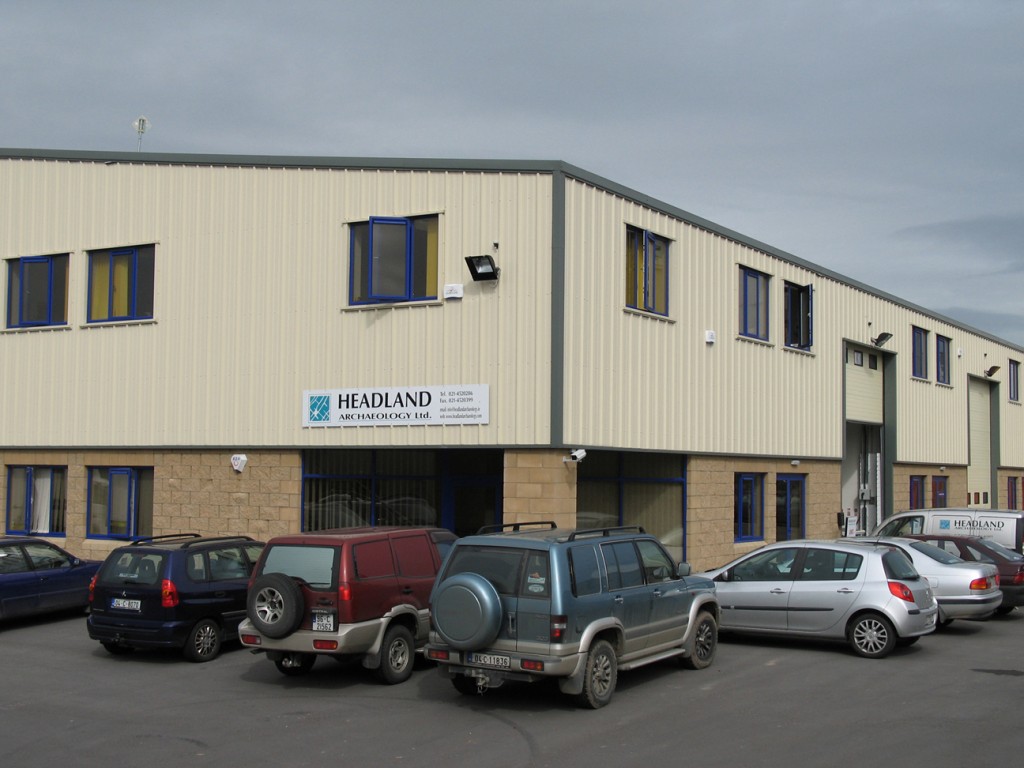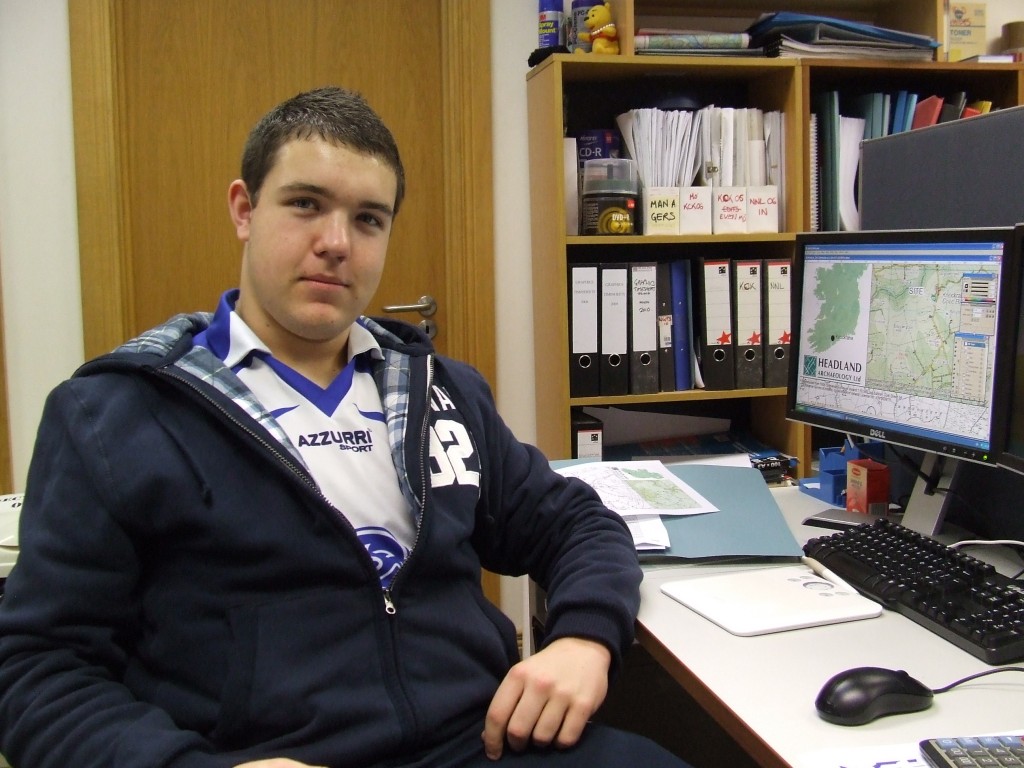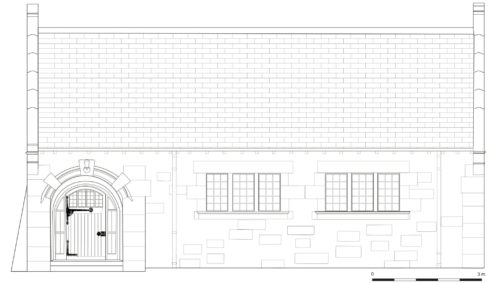As part of our outreach policy at Rubicon Heritage Services we agree each year to accept a number of transition year students for work placement in our offices. They generally spend between 1-2 weeks with us, learning about both archaeological practice and how a commercial business operates. Aged between 15 and 16, these students are at an early stage in their decision-making process regarding potential career-paths, and often want to discover if the reality of professional archaeology matches their expectations. One such student was Ina Ruckstuhl, who came to Rubicon from Mount Mercy College, Model Farm Road, Cork. She has since gone on to study archaeology and anthropology at the University of Oxford. In a recently shared her thoughts on her experience at our office, and how it helped her in deciding on her future career.

An office complex in a Cork City business park may not be the romantic landscape that archaeology usually brings to most minds. In reality, however, I would wager that at least half, if not more of an archaeologist´s year is spent here, replacing the outdoors with an office and abandoning the adventuring fieldworker (yes, there is a hint of Indiana Jones in all of us!) for anything ranging from a pottery specialist to a digital database expert or an academic analyst. It was this impressive variety of expertise that I was allowed to witness and be a part of for a week of transition year work experience at Rubicon Heritage Services, a week which no doubt helped me in successfully shaping my academic path towards a career in archaeology.
To begin with, shadowing an osteoarchaeologist as well as a member of the team whose interest lay in the prehistoric information obtainable from excavated animal remains, confirmed the applicability and future value of biology as a subject choice for my Leaving Certificate. A practical laboratory subject is generally advised to all students, however, witnessing archaeobotany and microscopic pollen analysis consolidated the need for these skills in my case. No less interesting was a more hands-on demonstration of pottery analysis, while some complicated digital mapping hours showed me the diversity of specialisation opportunities the field of archaeology truly offers. In fact in retrospect some of the most invaluable conversations for me were regarding the various academic backgrounds and choices of the employees themselves. I received insights on courses at University College Cork, Trinity College Dublin and Queens University Belfast (to all of which I later applied) not merely from prospectuses but from experience of past pupils. As the title transition year student already suggests, I was at an important time of academic change, faced with choices which could only be made into informed decisions through the insights work experience at Headland offered me. Of course such decision making was accommodated not least by some welcome interjections of more regular tasks such as artifact washing, numbering and recording tasks!

I would, however, like to return to that concept of analysis which I mentioned in the opening. Although an increasing number of Leaving Cert courses are beginning to incorporate a requirement for active and individual personal analysis on the part of student, it is in my opinion not a skill which the curriculum allows enough time for. Nevertheless, it is the case that it is a skill universities expect their students to command from the outset. It is therefore evident that students are required to compensate for this outside the realms of academic life. Work experience is undoubtedly an opportunity to do this, but personally my time at Rubicon Heritage Services was crucial in this respect. Despite working in the comfort of the office, actual artifacts formed the basis of discussion, interpretation and documentation. Even being shown for instance a photograph of a trench cross section and attempting to draw some conclusion offered a stimulating and refreshing manner of active learning. In fact, during my interview process at the University of Oxford, it was precisely this capacity to interpret and analyse a variety of objects and artifacts out of context which was the most challenging. For me this was certainly the most direct manner in which I came to a realisation of the value and significance of my Rubicon experience.
The physical techniques of excavating are ones interested students can learn on digs as volunteers or pay for the experience at a field-school. A commercial company however, not only offers an insight in the reality of a sizable proportion of archaeological work but in addition at Rubicon a large wealth of expert specialists work at one location. Specialisation is unquestionably important, but such a combination of information and knowledge is priceless, allowing well balanced interpretations of prehistory. Certainly a motivating environment for any budding archaeologist. Needless to say I would advise all students to participate in work experience in the area they are enthusiastic about prior to making critical school subject decisions. Crucially, however, if the career direction in question is, like archaeology, not covered in the curriculum, even a week in the midst of an expert team offers an invaluable and perhaps decisive opportunity. For me, Headland Archaeology undoubtedly provided such a stimulating experience, influencing the choices and paths I have taken and for this I am extremely thankful.

I love this article, many thanks to Ina for taking the time to put it together for us. Her enthusiasm for Archaeology was obvious while she was here and its fantastic to see that she followed it through all the way to Oxford. I hope she will thoroughly enjoy the wonderful career that undoubtedly lies ahead for her.